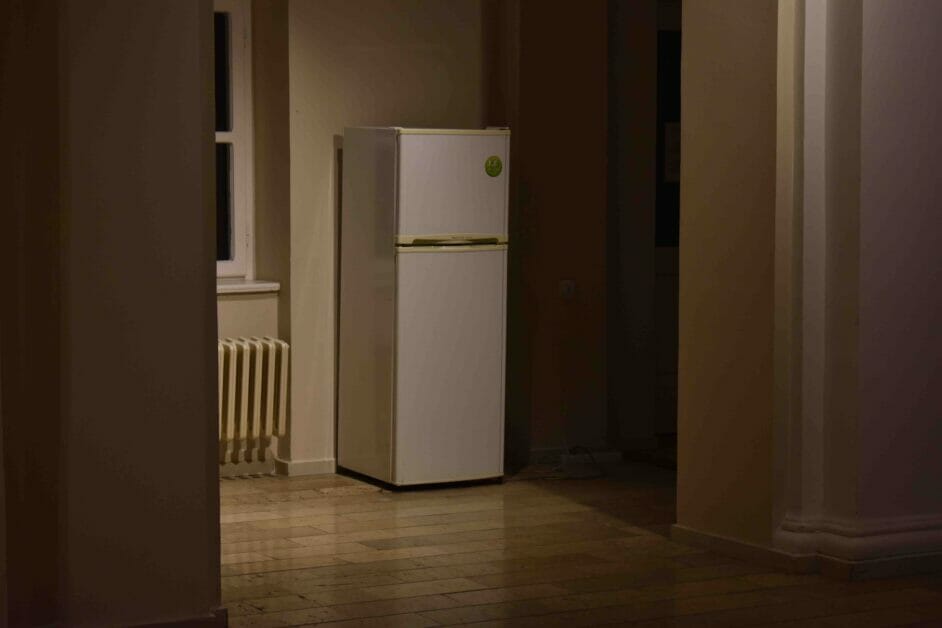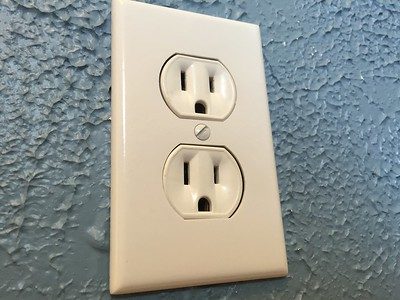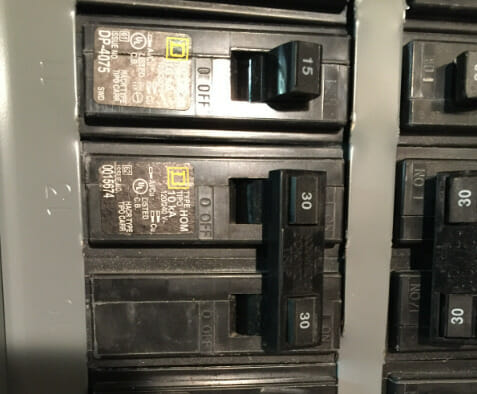Can You Plug a Refrigerator Into a Regular Outlet

Whether you can plug a refrigerator into a regular outlet depends on the outlet type, the circuit’s power capacity, and the refrigerator’s power requirement. Get this information from the manual or see the back of the refrigerator. You can plug a refrigerator into a regular outlet if the cord is not stretched or kinked. However, some refrigerators are designed in a way that they need to function on a dedicated circuit, and some types with special features, such as self-defrosting, may trip a GFCI too frequently.
In this article, we’ll look into the technicalities, as there are some aspects to be aware of before plugging a refrigerator into a regular outlet.
Regular Outlets
A regular outlet is an outlet you would find in most households.
They are normally connected to a 15-amp circuit and a 120-volt electricity supply. Regular outlets can handle appliances with a power rating of around 1200-1500 watts.
Most refrigerators come with a three-pronged plug that can be used with a regular outlet.

Is it Safe to Use a Refrigerator on a Regular Outlet?
You can plug a refrigerator into a regular outlet, but there are some things to remember.
Refrigerators on Dedicated Circuits
Ideally, connecting a refrigerator to a dedicated circuit would be best.
It means the outlet and circuit should not be shared with other appliances or devices, especially those that draw a heavy power load. If multiple appliances are used on the same circuit, it will draw too much power, resulting in a circuit overload and the breaker tripping.
Therefore, it is preferable to have a refrigerator on a dedicated circuit.

Length of Cord
Another important thing to consider is the length of the cord.
It should be long enough to connect the refrigerator to the power outlet. Also, it should not be stretched or kinked, which could damage the cord.
The distance from the outlet to the main panel is another factor. If it’s too long and causes a voltage drop of more than 10V, the circuit wiring will probably not be heavy enough [Althouse et al., 1982, p. 337].
Should I Plug My refrigerator into a GFCI Outlet?
A refrigerator does not need to be plugged into a GFCi outlet.
GFCI outlets are usually used in those areas where the appliances might come into contact with water or moisture, such as bathrooms, basements, and kitchens.
As for refrigerators, one problem which can occur if the outlet is unsuitable is that it can cause the circuit to trip frequently. If the issue is not caught soon enough, the food in the refrigerator may go bad, and you might only know about it when it’s too late.
Some refrigerators can cause the outlet to trip more frequently, specifically those that can self-defrost and ice makers which process water inside.
FAQs
How much power Does a Refrigerator Use?
The power usage of a refrigerator depends on its size, efficiency, and capacity.
Normally, a full-size refrigerator consumes between 300 and 800 watts, whereas a compact refrigerator consumes between 100 and 300 watts.
Refer to the manufacturer’s manual to determine your refrigerator’s exact wattage (or power consumption). This information might also be mentioned at the back of the unit.
Should I Use a Surge Protector for the Refrigerator?
There is no need to use a surge protector for your refrigerator.
Appliances such as refrigerators are built to have an inbuilt capacity to shut themselves down whenever a power surge occurs.
Using a surge protector may stop the refrigerator, which might not turn back on by itself. If unnoticed for a long period, it can lead to the food in your fridge going bad.
What Happens if You Plug a Refrigerator into an Extension Cord?
If you plug a refrigerator into an extension cord, it may not be able to manage the amount of power the refrigerator requires.
The cord will overheat, and the wire’s insulation might break down, resulting in a short circuit. It can also lead to straining the compressor, which can cause untimely wear and tear in the refrigerator.
References
Andrew Daniel, Carl Harold Turnquist & Alfred F. Bracciano. Modern refrigeration and air conditioning. Goodheart-Wilcox Company. 1982.
Regular Three-slot Socket: www.flickr.com/photos/142136365@N08/27548944342.
